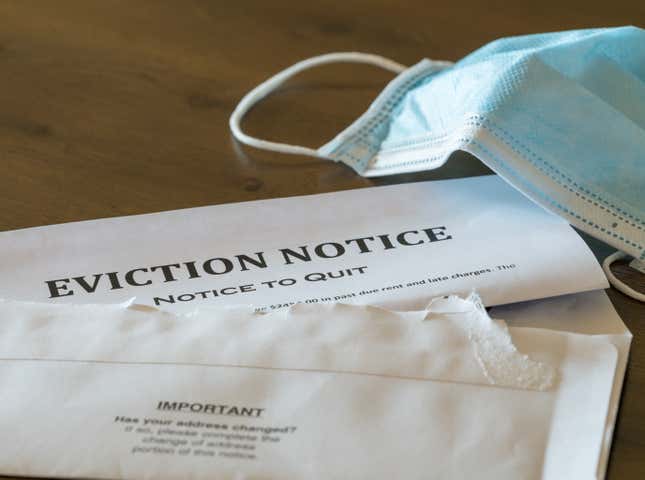
As the coronavirus pandemic continues to rage and unemployment rates continue to fluctuate, the Biden administration has announced it will extend the federal ban on evictions until June.
According to the Associated Press, the Centers for Disease Control and Prevention moved to extend the protections on Monday, as the moratorium was set to expire on Wednesday. The ban was initially enacted early on in the pandemic, as the immediate surge in unemployment meant that a lot of folks would’ve been put out on the street, and the lack of secure shelter could have resulted in the virus easily spreading among families living in cramped conditions.
From Associated Press:
To be eligible for the housing protection, renters must earn $198,000 annually or less for couples filing jointly, or $99,000 for single filers; demonstrate that they’ve sought government help to pay the rent; declare that they can’t pay because of COVID-19 hardships; and affirm they are likely to become homeless if evicted.
In February, President Joe Biden extended a ban on housing foreclosures to June 30 to help homeowners struggling during the pandemic.
Housing advocates had generally expected the extension of the tenant eviction moratorium and had been lobbying the Biden administration, saying it was too early in the country’s economic recovery to let the ban lapse.
John Pollock, coordinator of the National Coalition for a Civil Right to Counsel, told AP that recent surveys have shown that 18.4 percent of American renters are behind on rent. As with most awful things in this country, Black people have been disproportionately affected by income insecurity, with 32.9 percent of Black tenants currently behind on their rent.
While Pollock told AP that the ban was “the only thing holding back the flood” of evictions brought on by America’s still uncertain economy, there were some advocates who were disappointed that the administration only renewed the ban as opposed to strengthening it and making its protections universal.
As it stands now, the ban puts the onus on renters to confirm their eligibility for the protections. This essentially creates multiple loopholes for landlords to exploit, especially if someone doesn’t know their rights as a tenant or the hoops they have to jump through to prove their eligibility for the protections.
“While the Biden administration is well aware of the shortcomings in the moratorium order that allow some evictions to proceed during the pandemic, the CDC director did not correct them,” Diane Yentel, president of the National Low Income Housing Coalition, told AP. Yentel added that the CDC “simply extended President Trump’s original order, leaving the loopholes and flaws in place, a disappointing decision that will result in more harmful evictions during the pandemic.”



